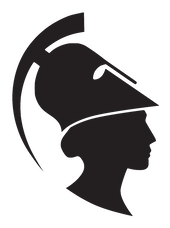The AWAWS Academic Mentoring Program, based on the Spectrum Academic Mentoring Program, aims to establish a supportive mentoring culture and provide an opportunity to connect with individuals of diverse backgrounds and levels of experience in the Australasian ancient world studies community.
The establishment of mentoring relationships provides numerous benefits for both mentor and mentee and assists in creating an environment that fosters personal and professional growth. Through the sharing of knowledge, skills, attitudes and behaviours, a mentoring relationship can:
The establishment of mentoring relationships provides numerous benefits for both mentor and mentee and assists in creating an environment that fosters personal and professional growth. Through the sharing of knowledge, skills, attitudes and behaviours, a mentoring relationship can:
- support the mentee in defining and pursuing goals, expanding perspectives and strengthening self-development plans;
- provide mentors with new perspectives on ideas and issues;
- increase self-awareness and personal growth for both parties;
- enhance motivation and work satisfaction for both mentees and mentors.
Interested in joining the AWAWS Academic Mentoring Program?
AWAWS Academic Mentor Program Coordinator: Assoc. Prof. Eva Anagnostou-Laotides, Macquarie University
([email protected]; please CC [email protected] in your email).
ABOUT THE PROGRAM
Program Goals
The AWAWS Academic Mentoring Program is voluntary, discipline specific, supportive of both mentors and mentees, places emphasis on mentees being proactive in searching for a mentor and presents a number of alternative types of mentoring relationships (e.g., one-on-one mentoring, group mentoring, peer mentoring, online mentoring and compound mentoring). The mentoring program aims to:
- be goal oriented;
- encourage various types of mentoring;
- set relationship time-frames;
- identify key skills for mentees and mentors;
- provide frameworks, checklists and reflection exercises.
Program Fundamentals
The AWAWS Academic Mentoring Program will implement the recommendations outlined in the Spectrum Approach to Mentoring Guide: A Guide to Mentors and Mentees, which contains essential information on:
The guide will be provided to AWAWS academic mentees and mentors. The guide highlights how beginning and building a positive mentoring relationship starts with both the mentee and mentor clearly understanding the purpose of the relationship. It is imperative that the mentee states clearly their purpose for seeking a mentor and that the mentors communicate unambiguously how they can assist. This negotiation establishes a framework for the relationship to ensure that expectations are reasonable and clearly communicated at the outset.
At the beginning of a mentoring relationship, an agreement should be reached between mentor and mentee regarding the type, duration and regularity of meetings (e.g., a weekly coffee meeting, a monthly formalised meeting in a meeting room, impromptu emailing or fortnightly phone calls).
Important matters that need to be discussed between mentee and mentor are:
- how to begin and build a mentoring relationship with identified key skills for both mentees and mentors;
- the confidentiality agreement to be signed by both mentees and mentors;
- practical advice for framing a first meeting, ongoing meetings and a final meeting via a case study approach;
- recommended checklists, meeting minutes and reflection exercises.
The guide will be provided to AWAWS academic mentees and mentors. The guide highlights how beginning and building a positive mentoring relationship starts with both the mentee and mentor clearly understanding the purpose of the relationship. It is imperative that the mentee states clearly their purpose for seeking a mentor and that the mentors communicate unambiguously how they can assist. This negotiation establishes a framework for the relationship to ensure that expectations are reasonable and clearly communicated at the outset.
At the beginning of a mentoring relationship, an agreement should be reached between mentor and mentee regarding the type, duration and regularity of meetings (e.g., a weekly coffee meeting, a monthly formalised meeting in a meeting room, impromptu emailing or fortnightly phone calls).
Important matters that need to be discussed between mentee and mentor are:
- the timeframe of the relationship;
- the confidentiality agreement;
- the no-fault no-blame procedure;
- the roles and responsibilities of the mentee and mentor.
